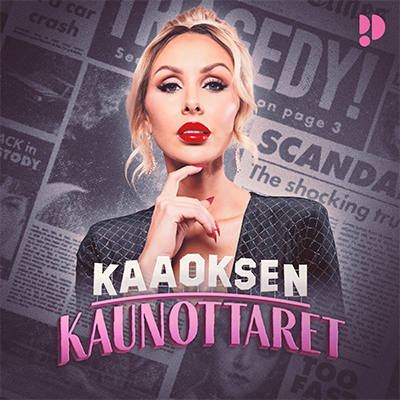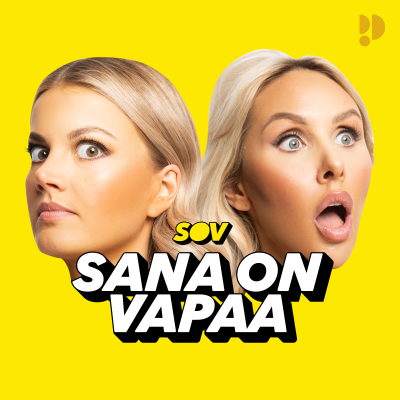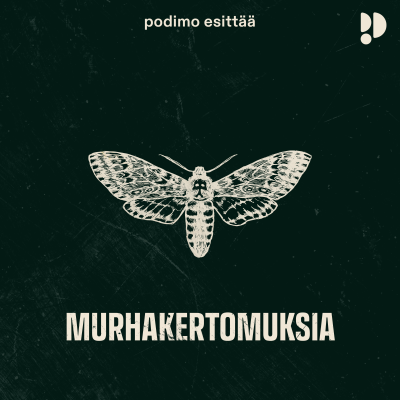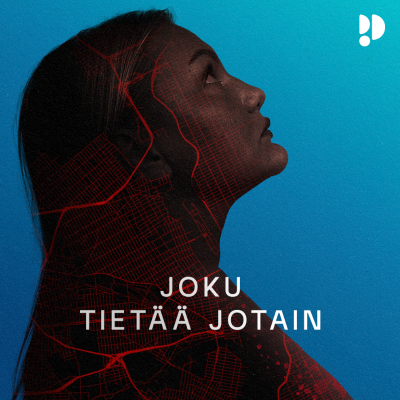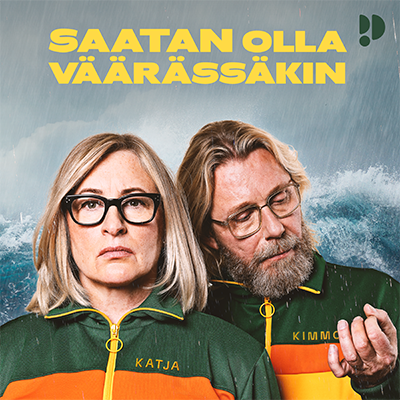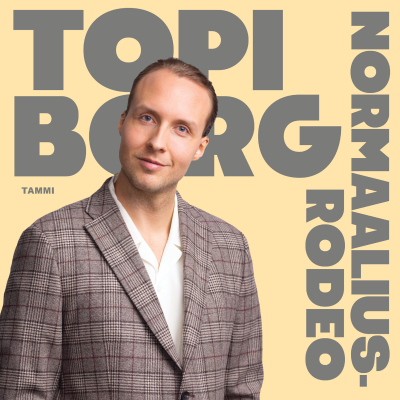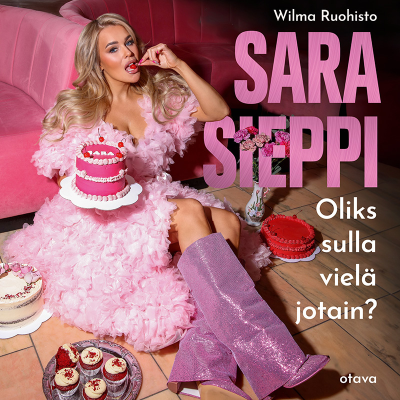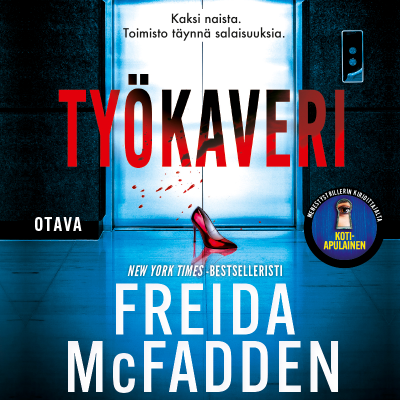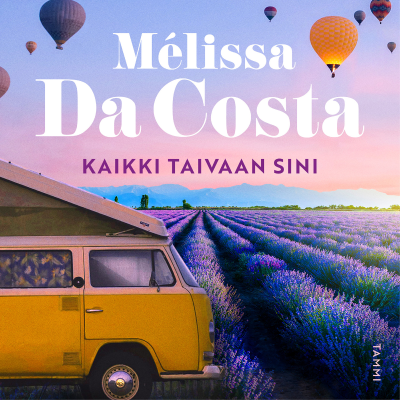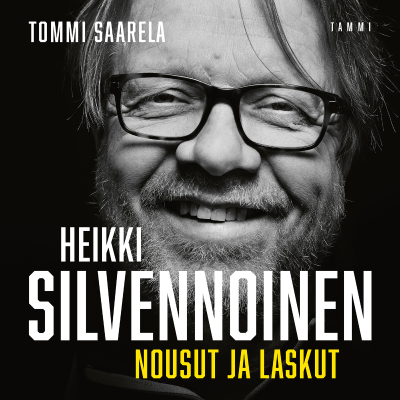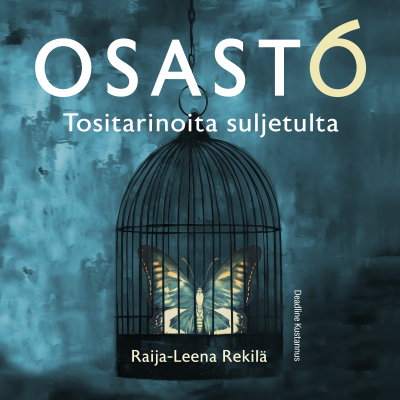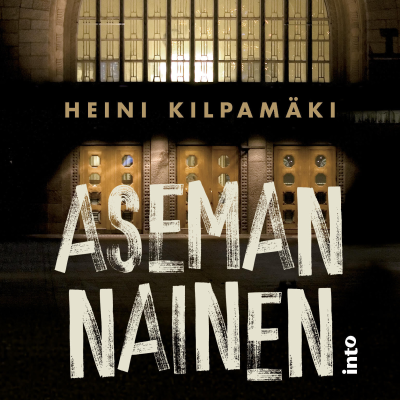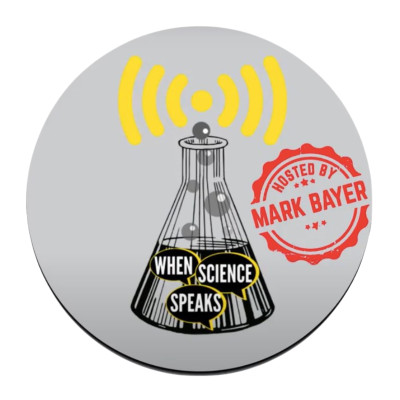
Kuuntele When Science Speaks
Podcast by Mark Bayer
When Science Speaks is a web series profiling innovative and interesting people working in science and technical fields - from academia, to industry, to the non-profit world. Mark and his guests explore: how to be a powerhouse advocate for science and your research; how to advance your career in meaningful ways that make you happy; how to push back on the assault on science; and other related issues of interest happening in the world. You can listen and subscribe to the podcast on your favorite app or podcast player.
Aloita 7 vrk maksuton tilaus
Kokeilun jälkeen 7,99 € / kuukausi.Peru milloin tahansa.
Kaikki jaksot
247 jaksotIn this week's episode, we delve into the crucial art of communication in the practice of medicine with Erika Ramsdale. As a geriatric oncologist and the writer of a poignant, powern Modern Love submission published in the The New York Times' "Modern Love" column, Dr. Ramsdale shares her unique perspective on effectively communicating with cancer patients. Discover how storytelling serves as a powerful tool to balance the raw emotion and hard facts involved in patient care. Key Topics Discussed: 1. The Power of Communication in Oncology * Understanding the dynamic interplay between facts and feelings in patient interactions. 2. Insights from Modern Love * How Dr. Ramsdale's personal experiences and emotional awareness enhance her medical practice, exemplified through her Modern Love essay titled "My dog had trust issues. So did I. Enter Kevin". 3. Navigating Uncertainty * The importance of addressing emotional responses and fostering trust in the physician-patient relationship, particularly when delivering complex medical information. 4. The Role of Storytelling * Exploring storytelling as a method to convey difficult truths while connecting deeply with patients. Dr. Ramsdale reveals how sharing personal narratives can break down barriers and enhance understanding. 5. Building Relationships Through Vulnerability * Reflecting on how showing vulnerability can lead to stronger connections and more effective communication, ultimately improving patient care. 6. Coping with Misinformation in the Digital Age * Strategies for communicating effectively amidst the challenges of misinformation and the erosion of public trust in science. Featured Keywords: * Emotion: The significance of recognizing and addressing emotions when communicating with cancer patients. * Facts: Balancing factual information with compassionate communication to enhance patient understanding. * Communication: Effective methods for conveying complex medical information in an accessible manner. * Cancer: Insights specific to the oncology field and the unique challenges of communicating cancer diagnoses and treatment options. * Storytelling: Leveraging personal stories to enrich patient interactions and create a supportive environment. Guest Bio: Erica Ramsdale, M.D. is a dedicated geriatric oncologist, NIH-funded researcher. Her moving essay, "My dog had trust issues. So did I. Enter Kevin", was published in The New York Times' Modern Love column. Dr. Ramsdale's work emphasizes the intersection of emotional intelligence and effective communication in the medical field, particularly concerning the challenges faced by older adults with cancer. Listen Now: Join us for this powerful conversation about the vital role of emotional and narrative elements in medical communication. Tune in to learn how to better support cancer patients through understanding, empathy, and storytelling. Resources - "My Dog Had Trust Issue. So Did I." Link [https://www.nytimes.com/2024/11/29/style/modern-love-stray-dog-devotion.html?unlocked_article_code=1.vE4.nCyX.7qOQ5ChqaK0N&smid=url-share] to Erika Ramsdale, M.D.'s Modern Love column in The New York Times:
Mastering High-Stakes Scientific Presentations with Dr. Tae Seok Moon This episode features Tae Seok Moon, Ph.D., Full Professor at the J. Craig Venter Institute. Dr. Moon talks about preparing and delivering impactful scientific presentations and shares insights on his current research, which is focused on solving global issues through synthetic biology. He also discusses his initiative, the Synthetic Biology Young Speaker Series (SYNBYSS), which supports young researchers in presenting their work globally. Additionally, Dr. Moon shares his journey of overcoming language barriers in science communication and offers practical tips for making scientific talks engaging and memorable for diverse audiences. 00:00 Introduction: Preparing for a Big Presentation 00:21 Guest Introduction: Dr. Tae Seok Moon 01:17 Dr. Moon's Research Focus 02:54 The Synthetic Biology Young Speaker Series 05:17 Challenges and Innovations in Virtual Conferences 10:55 Science Communication Strategies 19:30 Dr. Moon's Personal Communication Journey 27:08 The Importance of Humanizing Scientists 32:13 Conclusion and Farewell
Episode Summary: In this episode of When Science Speaks, host Mark Bayer interviews Joana Magalhães, Ph.D. about her innovative approaches to science communication and community engagement. As a senior researcher at Science For Change in Barcelona, Johana shares her journey from tissue engineering to filmmaking and how these experiences have shaped her philosophy of making science relatable and impactful in society. Mark and Joana discuss the importance of citizen involvement in research, the role of lived experience, and how connecting with communities can enhance scientific understanding and policy-making. Johana also highlights exciting projects, such as the European Competence Center for Science Communication, aimed at empowering scientists to communicate effectively with diverse audiences. Key Topics Discussed: * The challenge of engaging the public in scientific discourse * Johana’s multidisciplinary background and its influence on her work * The significance of citizen science and participatory research * The impact of lived experience on shaping scientific inquiry * Initiatives in Spain aimed at integrating science into policy-making * Strategies for scientists to improve their communication skills Resources Mentioned: * 11 Keys to Translating Complexity (Free infographic [https://complexitmadeclear.com]) * Science For Change [https://www.scienceforchange.eu/en/] * European Competence Center for Science Communication [https://coalesceproject.eu/]
Episode Summary: This insightful episode features Emmanuel Tsekleves, Ph.D., a full professor at Lancaster University and research director in Lancashire, England. Emmanuel shares his personal journey from Ph.D. graduate to full professor by age 40 and offers invaluable advice on how Ph.D. candidates, postdocs, and early-career academics can successfully navigate the complex academic job market. From avoiding common application mistakes to the importance of securing funding, this conversation is packed with practical tips for aspiring academics. Key Takeaways: * Start Early & Learn from Mistakes: Dr. Tsekleves highlights the importance of mentors and learning from early mistakes in his academic journey. He emphasizes that mistakes can be powerful learning tools but suggests it’s even better to learn from others’ experiences. * Transitioning from Postdoc to Assistant Professor: Many postdocs fall into the trap of discussing future research plans rather than focusing on securing funding. Emmanuel explains how this common pitfall can hinder postdocs’ chances of securing tenure-track positions. * Application Quality vs. Quantity: Sending out many generic applications will likely yield poor results. Emmanuel stresses the importance of focusing on a single application, conducting thorough research on the institution, and aligning your application materials with their specific needs. * Speak to the Postholder: Before submitting an application, Emmanuel suggests reaching out to the academic contact listed in the job ad. This helps you gain insider information, shows genuine interest, and gives you visibility with those making hiring decisions. * Show How You Add Value: Instead of listing your qualifications, demonstrate how your skills and experience align with the needs of the institution. Show how you can contribute to their teaching programs, research groups, and overall mission. Actionable Tips: 1. Avoid Common Pitfalls: Postdocs need to shift their mindset from talking about research to discussing the funding they can attract. Learn to demonstrate value by focusing on what you bring to the institution. 2. Prioritize Quality Over Quantity: Tailor each application specifically to the institution and role, showing how your research and teaching expertise fit their culture and objectives. 3. Engage with the Hiring Institution: Reach out to the postholder before submitting your application. It gives you a chance to learn more about the role and make a strong impression. 4. Research and Personalize Your Applications: Whether you’re applying for a postdoc or a tenure-track position, be sure to thoroughly research the department and align your cover letter, research statement, and teaching statement with their current projects. About Dr. Emmanuel Tsekleves: Dr. Emmanuel Tsekleves is a professor at Lancaster University, where he also serves as research director. His work includes mentoring early and mid-career academics, helping them publish high-quality research, secure funding, and navigate the academic job market. He offers a variety of resources, including training programs and his popular newsletter, Academic Insider. Connect with Dr. Emmanuel Tsekleves: * LinkedIn: Emmanuel Tsekleves [https://www.linkedin.com/in/emmanueltsekleves] * Twitter/X: @EmmanuelTsekleves [https://twitter.com/EmmanuelTsekleves] * Instagram: @EmmanuelTsekleves [https://instagram.com/EmmanuelTsekleves]
Bridging the Communication Gap for Scientists and Engineers: Insights from “Speak Like a CEO” Thought Leader Oliver Aust In this episode of When Science Speaks, I sit down with Oliver Aust, one of the world’s preeminent experts on leadership communications. Oliver has helped hundreds of founders and CEOs become top 1% communicators, including many leaders with a scientific or engineering background. Oliver shares actionable tips and insights in his books, LinkedIn and newsletter, as well as on his popular podcast, Speak Like a CEO. Those interested in working with Oliver can join the Speak Like a CEO Academy (links to Oliver’s offerings in the Resources section below). During the episode, Oliver highlights common communication challenges and offers strategies for improvement, such as using clear structures, storytelling, and simplifying language. He also emphasizes the importance of understanding one's audience and dealing with linguistic nuances for non-native English speakers. 00:00 Introduction: The Power of Clear Communication 00:21 Challenges for Scientists and Engineers 00:39 Career Transition Beyond Academia 00:54 Exploring Communication Improvement Options 01:00 Guest Introduction: Oliver Aust 01:57 Common Communication Blind Spots 03:28 Transforming Leadership Communication 04:41 Practical Hacks for Effective Communication 06:18 Case Studies and Real-World Examples 10:33 Overcoming Language Barriers 16:44 Final Thoughts and Actionable Tips 19:08 Conclusion Resources Mentioned in the Episode Oliver’s LinkedIN [https://www.linkedin.com/in/oliver-aust/] profile Oliver’s books: Available on this page [https://eoipsocommunications.com/insights/] * Message Machine: How Communications Will Make You an Unstoppable Founder * Unignorable: Build Your Personal Brand and Boost Your Business in 30 Days * Mastering Communications: How CEOs and Executives Can Build a Great Reputation in the Digital Age * How to Speak Like a CEO: How successful leaders communicate Speak Like a CEO: * Podcast [https://open.spotify.com/show/5qC1wouXgqlEq1yeQf8Q60] * Newsletter [https://eoipsocommunications.com/newsletter/] * Academy [https://speaklikeaceoacademy.com/]
Aloita 7 vrk maksuton tilaus
Kokeilun jälkeen 7,99 € / kuukausi.Peru milloin tahansa.
Podimon podcastit
Mainoksista vapaa
Maksuttomat podcastit

